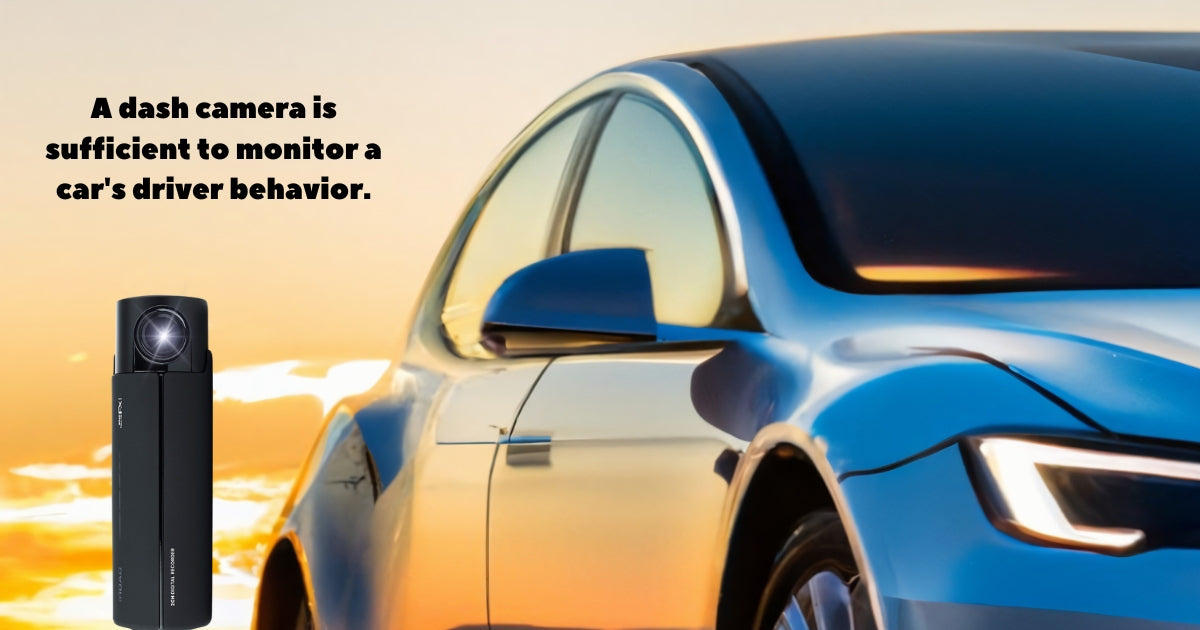Introduction
In an era where road safety is paramount, a dashboard cam having a reliable method to monitor and evaluate driver behavior is crucial. Dash cameras have emerged as essential tools for this purpose, offering myriad features that help ensure accountability and safety on the road. This blog explores how a dash camera can effectively monitor a car's dash cam driver behavior and why it's a worthwhile investment for both personal and professional use.
What is a Dash Camera?
A dash camera, commonly known as a dash cam, is a small video recording device mounted on a vehicle’s dashboard or windshield. It continuously records the view through the vehicle's front windscreen and sometimes rear or other windows. Advanced models come equipped with GPS, G-sensors, and Wi-Fi connectivity, making them powerful tools for monitoring driving behavior.
Key Features of Dash Cameras for Monitoring Driver Behavior
1. Continuous Recording
Dash cams or car recorder camera record continuously, capturing all events during a drive. This feature ensures that every detail of a journey is documented, providing a comprehensive record of driving behavior. Continuous recording is essential for monitoring habits such as frequent braking, camera in car sudden acceleration, and lane changes.
2. GPS Tracking
Many modern dash cams for cars come with GPS functionality, which records the vehicle’s speed and location. This feature is particularly useful for fleet management and for parents monitoring young drivers. It allows for tracking of routes taken and speeds maintained, camera for car helping identify any instances of speeding or unauthorized detours.
3. G-Sensors
G-sensors in dash cams detect sudden movements or impacts, automatically marking and saving the relevant footage. This is crucial in the event of an accident, as it provides clear evidence of the circumstances leading to the collision. It also helps in identifying aggressive driving behaviors such as hard braking or rapid acceleration.
4. Video Quality
High-definition video quality dashboard camera ensures that the recorded footage is clear and detailed. This is important for accurately assessing driving behavior, as it allows for the identification of specific actions like proper signaling, adherence to traffic signs, and safe distance maintenance from other vehicles.
5. Audio Recording
Some dash cams include audio recording, and capturing conversations and sounds within the vehicle. This vehicle dash camera can provide additional context to the video footage, helping to understand the driver's state of mind and responses to various situations.
6. Driver Alerts
Advanced dash cams come with driver assistance features such as lane departure warnings, collision alerts, and fatigue detection. These alerts help prevent accidents and encourage better driving practices by reminding the driver to stay vigilant and adhere to safe driving protocols.
Benefits of Using a Dash Camera to Monitor Driver Behavior
1. Enhanced Accountability
Dash cameras hold drivers accountable for their actions on the road. camera car
Knowing that their behavior is being recorded encourages drivers to follow traffic laws and drive more responsibly. This is particularly useful for fleet management, where maintaining a high standard of driving is essential.
2. Improved Safety
By monitoring driver behavior, dash cams help in identifying risky practices such as speeding, harsh braking, or distracted driving. Addressing these behaviors can lead to improved safety for the driver, passengers, and other road users.
3. Evidence Collection
In the event of an accident, car camera dashboard footage provides clear evidence of what transpired. This can be invaluable for insurance claims, legal proceedings, and resolving disputes. The objective nature of video evidence helps in accurately determining fault and protecting drivers from false accusations.
4. Training and Feedback
For new or inexperienced drivers, cam for car can serve as effective training tools. Reviewing recorded footage allows drivers to receive constructive feedback on their driving habits, helping them improve and develop safer driving skills.
5. Deterrence of Fraudulent Claims
Dash cams can deter fraudulent insurance claims by providing irrefutable evidence of actual events. This not only protects the driver but also helps in keeping insurance premiums in check by preventing payouts on false claims.
Conclusion
A dash camera is more than just a recording device; it is a comprehensive tool for monitoring and improving driver behavior. Its ability to provide continuous recording, GPS tracking, and real-time alerts makes it indispensable for anyone seeking to enhance road safety and accountability. Whether for personal use, fleet management, or driver training, investing in a quality dashcam can lead to safer driving practices and provide peace of mind on the road. As technology continues to advance, the capabilities of dash cameras will only expand, further solidifying their role as essential components of modern driving.
